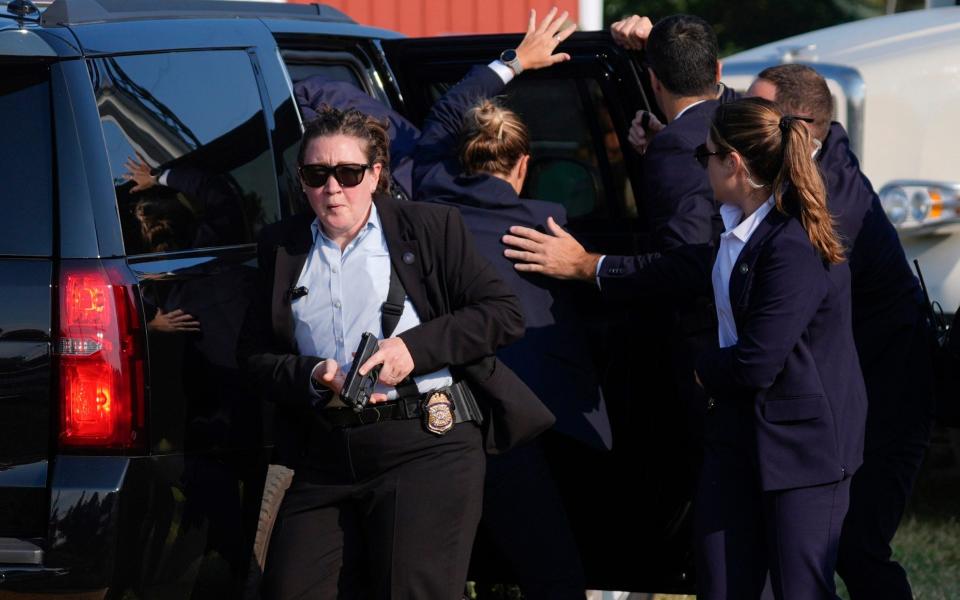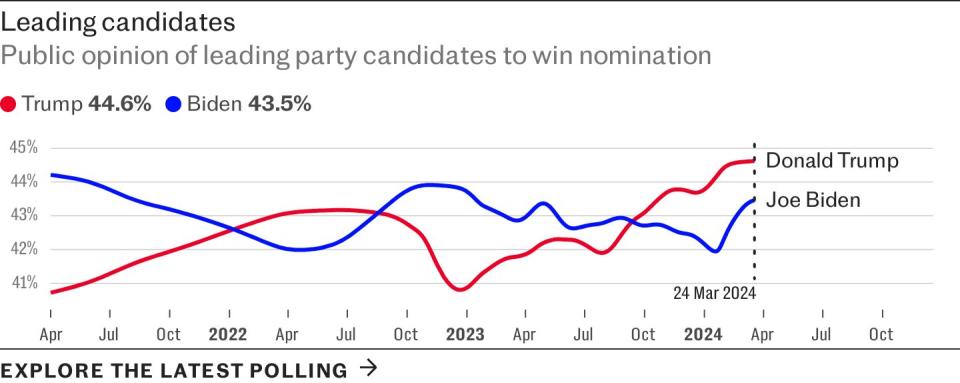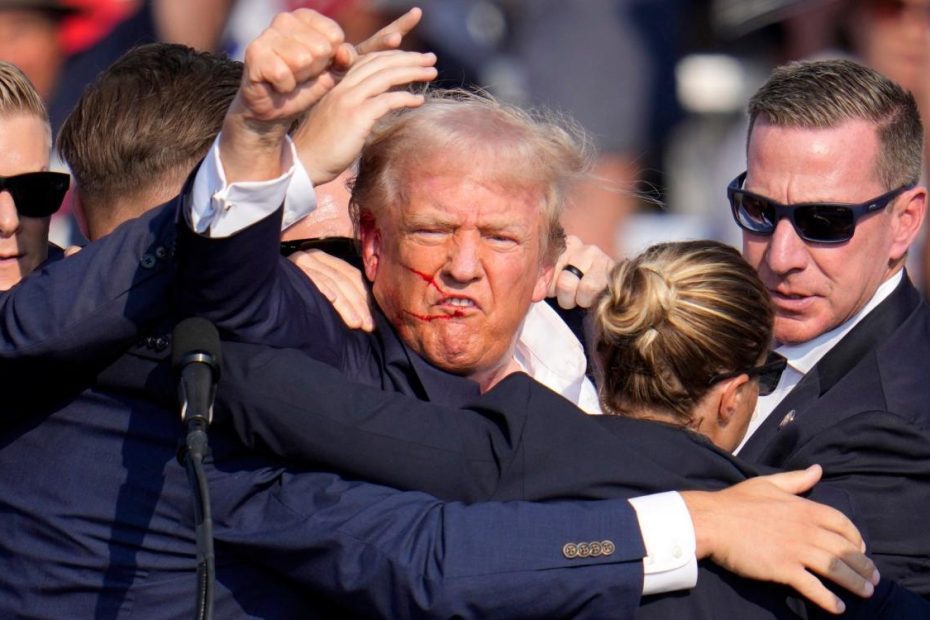

Political strategists often talk about campaigns in terms of “moments.”
These are moments in time that irrevocably change the political landscape and force those involved to adapt their behavior to a new starting position.
The attack on Donald Trump last Saturday night is the most important event in decades.
In the seconds after gunfire rang out at the field where the Republican candidate was addressing his supporters, it became clear that everything had changed.
A historic photo of the scene, captured in time by an Associated Press photographer, shows Trump stumbling from the stage, dripping with blood and surrounded by Secret Service agents.
Moments after nearly dying, the former president raised his fist in defiance and his lips formed one word: “Fight.”
This is the first credible assassination threat against a US president since Ronald Reagan was shot in March 1981.
There have been other feeble attempts — not least against Trump, who has been the target of at least three previous plots. Multiple potential attackers have plotted to assassinate Joe Biden.


The constant threat of violent death is an occupational hazard for American commanders in chief. Four sitting presidents have succumbed to it.
Still, there is no denying that this incident will have a major impact on this year's presidential election.
Trump has built his campaign on the idea that everyone is out to get him. Federal prosecutors, judges, election officials, rival politicians and journalists have all been accused of trying to undermine his campaign and prevent his return to the White House.
Many of those claims have been rightly disputed. But after the incident in Pennsylvania, even Trump’s worst enemies can’t deny that there are those who would rather see him dead than re-elected.
Like Reagan, Trump can expect a rise in the polls
Polls already indicate that Trump is likely to reclaim the presidential election in November, after a tough few months for his opponent and a conviction that had little effect on his popularity.
If history teaches us anything, it is that Saturday's events will only increase his support. In the months since Mr. Reagan was shot, the newly elected Republican president has seen an eight-point polling increase.
On Monday, Trump will greet supporters in Milwaukee, Wisconsin, to announce his running mate at the Republican Party's national convention.
Security measures, already stringent, are likely to be further tightened in response to the serious security breach that nearly ended the nominee's life.
But the rhetoric will be different, too. Trump’s supporters are already claiming that the assassination attempt is the latest blow in his war to save the US, and that framing will now dominate the campaign.


Minutes after the incident, the former president's son posted a photo of his father being led away, with the caption: “He will never stop fighting to save America.” After receiving medical treatment, Trump himself said it was “unbelievable that something like this could happen in our country.”
The underlying message of that comment is clear: America is broken and he, with the help of his followers, will fix it.
The attempt on Trump's life is a painful reminder of how a single groundbreaking moment can upend an already stormy campaign.
Any remaining doubts that Trump will win this year's election are now receding, and Biden's blunders earlier this week – while undoubtedly dramatic – now seem irrelevant.
People who were alive in 1963 still wonder what they did when they heard that John F. Kennedy had been shot.
Decades from now, they'll ask, “Where were you when the bullet missed Trump?”
Broaden your horizons with award-winning British journalism. Try The Telegraph free for 3 months with unlimited access to our award-winning website, exclusive app, money-saving offers and more.

